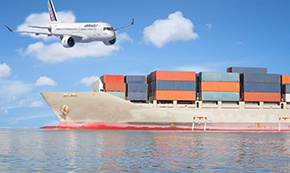All categories >
Breaking news! The court rules Trump's tariff measures illegal, dealing a heavy blow to US trade hegemony?
Categories:
News Center
News
Time of issue:
2025-09-05 16:37
Views:
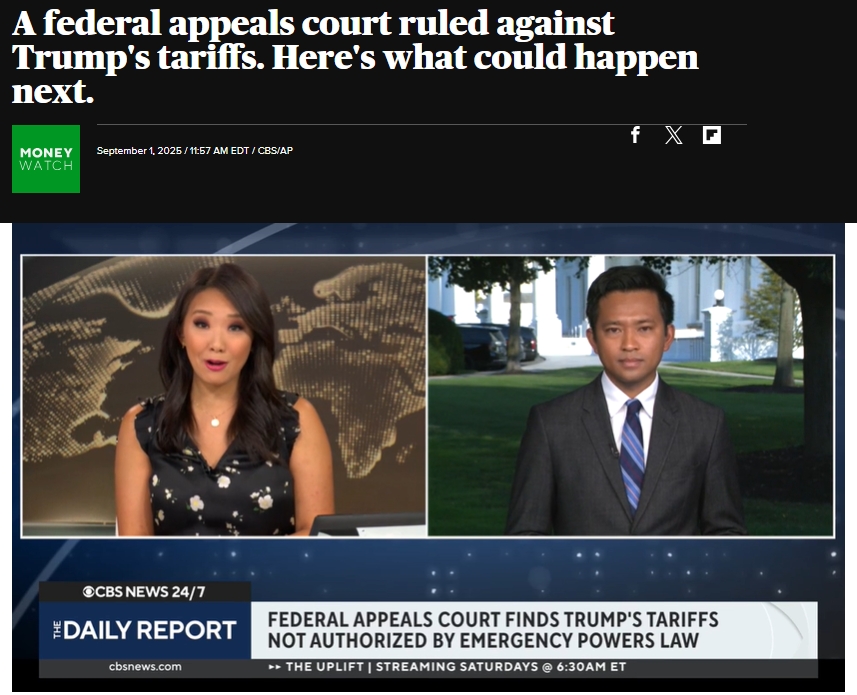
01 Trump's "Tariff Weapon" Once Swept Through Multiple Countries' Trade
Since taking office, Trump has always regarded "tariffs" as a core tool to leverage trade negotiations and protect domestic industries. Besides targeted tariffs on industries like steel and aluminum, he introduced two types of "general tariffs" under the International Emergency Economic Powers Act, which put pressure on multiple trade partners:
01 Trafficking Tariffs
Under the pretext of "combating drug smuggling," imposed up to 25% tariffs on imports from North American neighbors such as Canada and Mexico, covering various categories including auto parts and agricultural products;
02 Reciprocal Tariffs
Starting summer 2025, established a baseline 10% tariff on almost all major trade partners (including the EU, Japan, South Korea, etc.), claiming to "reverse unfair trade deficits," and threatened to increase tariffs further based on country differences.
These policies once caused importers in the U.S. to face soaring costs, and also triggered multiple countries to launch countermeasures through the WTO, escalating global trade frictions.
02 Presidential Overreach: Taxation Power Belongs Exclusively to Congress
The Federal Circuit Court of Appeals' ruling directly exposed the "legal flaw" in Trump's tariff policy, with the core points focusing on two aspects:
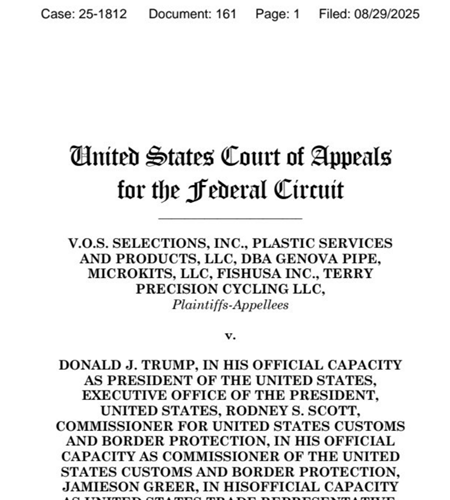
01 The International Emergency Economic Powers Act Does Not Grant "Taxation Power"
The court clearly pointed out that the legislative intent of this law was to allow the president to take emergency measures such as "freezing assets and restricting specific transactions" under a "national emergency," rather than establishing a normalized "fiscal tariff system." "Managing imports" and "general taxation" are two different matters, the latter's power is constitutionally granted explicitly to Congress, and the president has no authority to overstep.
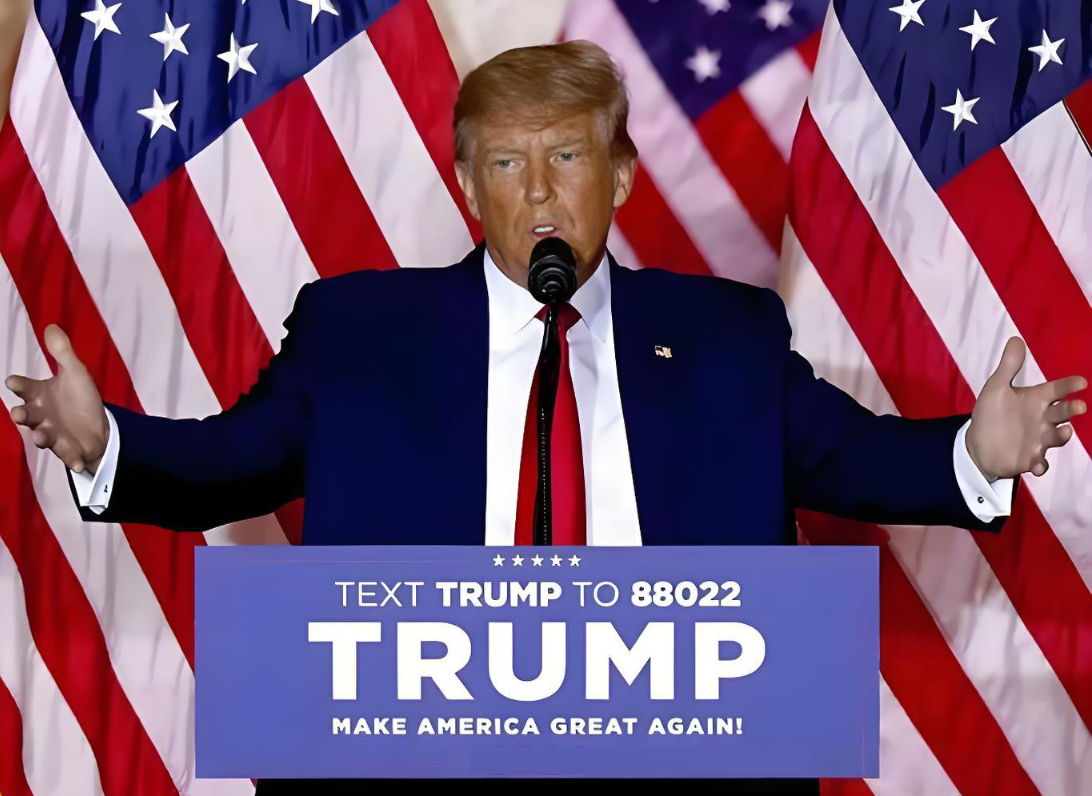
02 Only "general tariffs" are illegal; industry-specific targeted tariffs remain unaffected
The ruling specifically distinguished policy boundaries: Trump's steel and aluminum tariffs, auto tariffs, and other "industry-specific targeted measures" implemented under Section 232 of the Trade Expansion Act of 1962, having clear legal authorization, are not within the scope of this illegal ruling. This means the court did not completely deny the president's trade regulation authority but delineated the "red line of power."
03 Trump confronts the court head-on, vows to appeal to the Supreme Court
In response to the ruling, Trump's reaction was described as "furious," immediately expressing dissatisfaction through social media and public speeches:
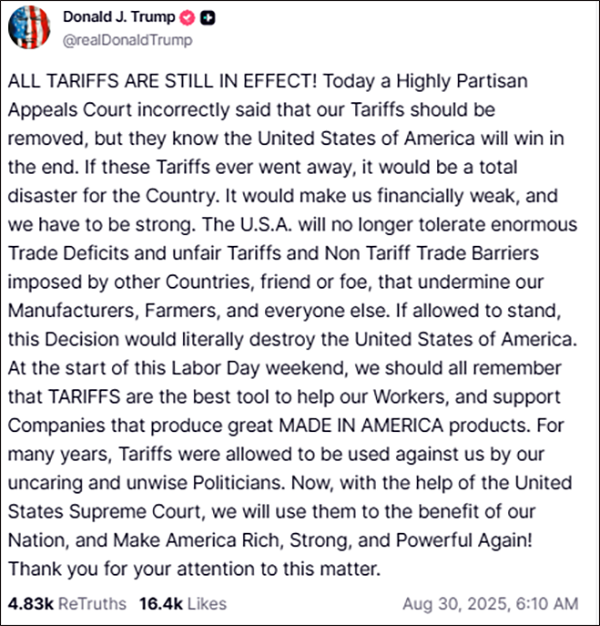
He called the ruling "a disaster for the U.S. economy," accusing the court of being "controlled by partisanship," betraying the original intention to "protect American interests;"
firmly declared "all tariffs will remain in effect," refusing to suspend enforcement due to the ruling;
and clearly stated he would appeal to the Supreme Court to overturn the Circuit Court's decision.
The White House followed up with a statement emphasizing that tariffs are "a necessary means to safeguard national security and industrial security," and said the court's ruling "weakened the president's ability to respond to international crises." Obviously, Trump is unwilling to easily give up this core governing tool.
04 A Power Struggle Beyond Tariffs
This "illegal tariff ruling" is essentially a fierce clash within the U.S. system of "separation of powers": Trump attempts to push trade protectionism by expanding executive power, while the court defends Congress's constitutional authority.
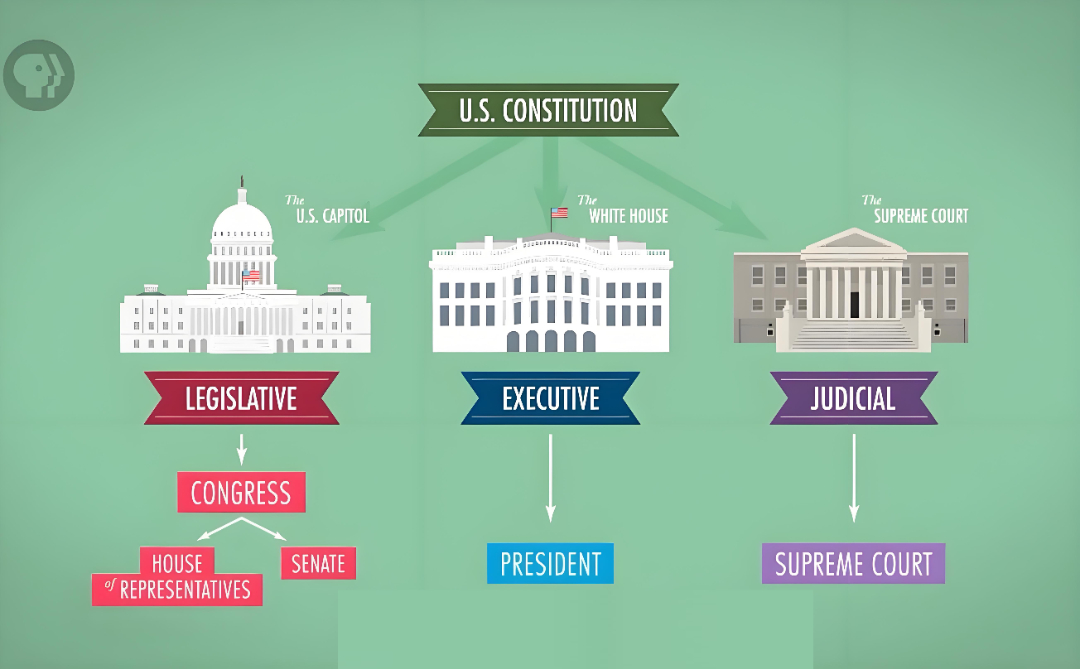
Regardless of the Supreme Court's final decision, one thing is certain: the U.S. unilateral tariff policy can no longer "act arbitrarily," and the global trade landscape will undergo new adjustments in this game. For companies dependent on the U.S. market, closely monitoring policy trends and preparing response plans in advance has become an urgent priority.
Shenzhen Huijietong International Freight Forwarding Co., Ltd. — Professional U.S. Line Transportation Services
In the U.S. line transportation field, Shenzhen Huijietong International Freight Forwarding Co., Ltd. has become a trusted choice for many customers due to its professional services and rich experience. Huijietong International Freight Forwarding Co., Ltd. focuses on U.S. line transportation, providing comprehensive logistics solutions including sea freight, air freight, land transportation, and warehousing services. The company maintains close cooperation with major shipping alliances, able to offer flexible space arrangements and efficient transportation services according to customer needs.
Choosing Huijietong International Freight Forwarding Co., Ltd. means choosing professional, efficient, and reliable logistics services. For more details, please visit [Huijietong official website www.szvif.com
For shipments to the U.S., choose Huijietong!
Shenzhen Huijietong International Freight Forwarding Co., Ltd., your professional U.S. line transportation partner.
Service Hotline: 0755-82171929 13560787209
WeChat QR Code
Keywords:
Trump Administration,Tariff Policy,U.S. Tariffs




